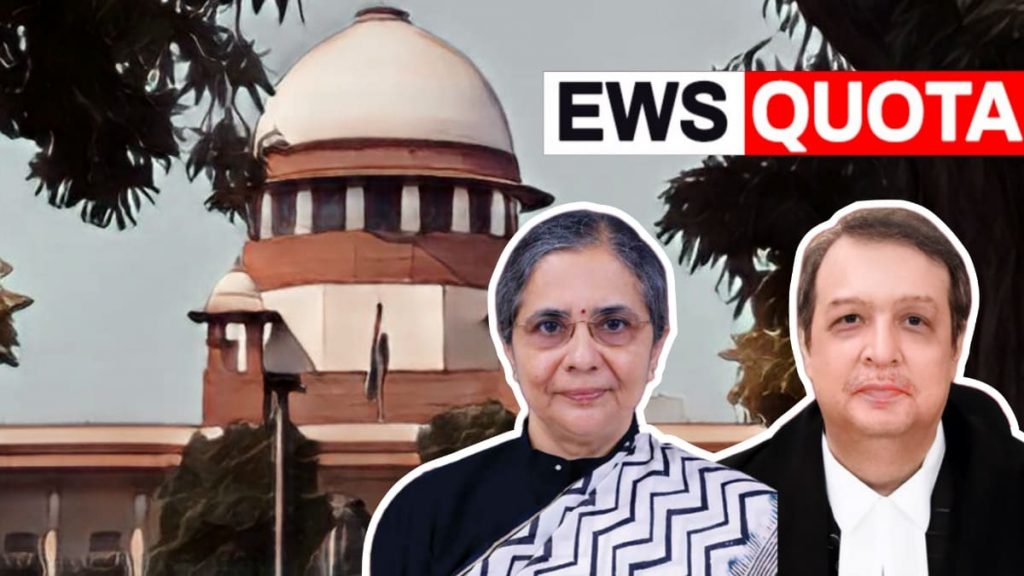The much needed EWS reservations have become a reality.
With 3:2 majority verdict the Supreme Court has upheld the validity of the 103rd Constitutional Amendment. The amendment is for providing 10% reservation for Economically Weaker Sections (EWS) in education as well as in government jobs.
Justices Dinesh Maheshwari, Bela Trivedi and JB Pardiwala upheld the amendment. While Chief Justice of India UU Lalit and Justice S Ravindra Bhat passed a dissenting judgement.
What the judges said
Justice Dinesh Maheshwari, Bela M Trivedi and JB Pardiwala, stated the reservation structured singularly on economic criteria does not violate the basic structure of the Constitution. The judges also said that breach of 50% ceiling limit by EWS reservations does not violate the basic structure.
Reservations for EWS does not violate basic structure on account of 50% ceiling limit because ceiling limit is not inflexible.
Justice Dinesh Maheshwari
“Reservation is an instrument of affirmative action by State so as to ensure all inclusive approach. It is an instrument not only for inclusion of socially and educationally backward classes….,” said Justice Maheshwari.
Treating unequals equally violates equality under the Constitution…The amendment creates a separate class of EWS. The exclusion of SEBCs (socially and educationally backward classes) cannot be said as discriminatory or violative of Constitution.”
Justice Trivedi
Reservation is not an end, it is a means.
Justice Pardiwala
On the contrary, Chief Justice of India UU Lalit and Justice S Ravindra Bhat in a dissenting note said that EWS reservations is per se not violative.
“However, by excluding the poor among SC/ST/OBC from economically backward classes (on the ground that they have enjoyed benefits), the 103rd Amendment practices constitutionally prohibited forms of discrimination…our constitution does not permit exclusion and this amendment undermines the fabric of social justice and thereby the basic structure.”
“This amendment is deluding us to believe that those getting social and backward class benefit is somehow better placed. The characterization of excluding the poor of SEBCs is incorrect. What is described as benefits cannot be understood as free pass…,” they added while opining against breaching the 50% ceiling in matters of reservation.
This split verdict on EWS reservations comes after petitioners filed different petitions challenging the validity of Constitution (103rd) Amendment Act 2019. Modi government had introduced the 103rd amendment. The aim was to provide reservations on economic grounds.
Educational institutions, including private institutions, whether aided or unaided, can provide such reservations. However, it does not apply to Minority educational institutions covered under Article 30(1). It had fixed the upper limit of the reservation at 10 percent. It will be in addition to the existing reservations.
BJP welcomes the verdict on EWS reservations
As expected, BJP has welcomed the decision of apex court for reservations on economic basis. BJP general secretary CT Ravi said the verdict is yet another victory for Modi in his mission to provide social justice to India’s poor.
“Supreme Court upholds the legality of EWS reservation for unreserved sections. Another big credit for PM Narendra Modi’s vision of Gareeb Kalyan. A big boost in the direction of social justice,” he said.
B.L.Santosh, General Secretary, BJP
